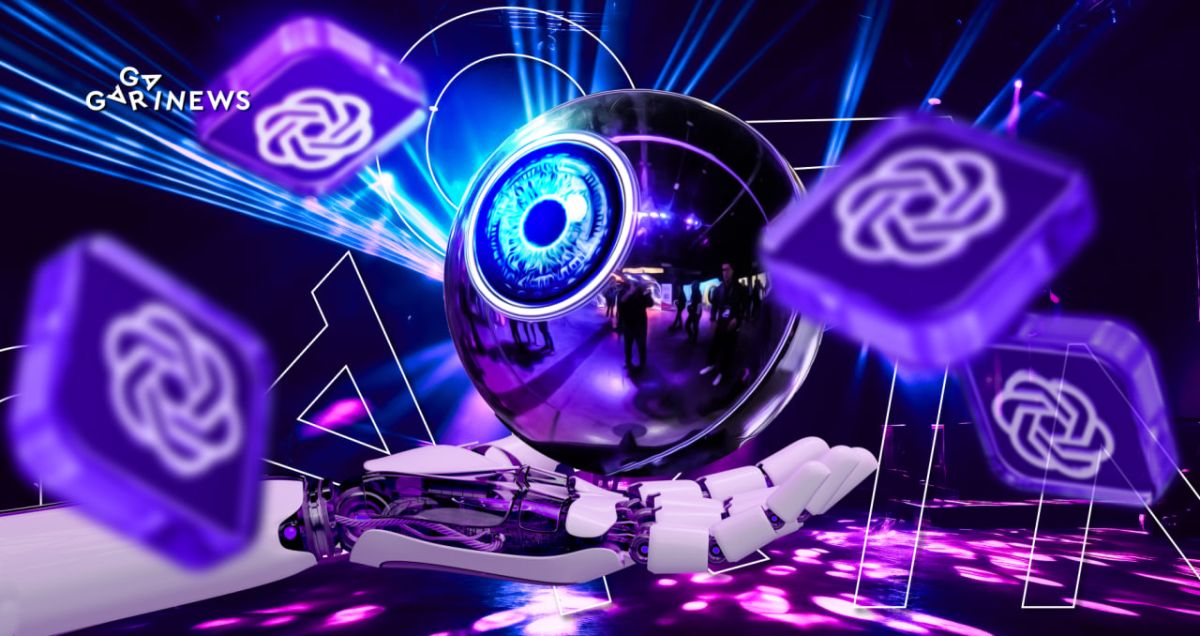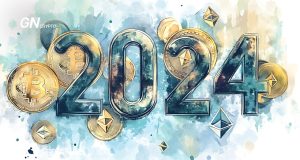Worldcoin Launch: What Happens When You Stare Into the Abyss?

Worldcoin, led by OpenAI’s CEO Sam Altman, has officially embarked on its journey. The developers are gearing up to persuade people to scan their eyeballs as part of their verification process.
On this page
Worldcoin: The Preliminary Results
The new WLD token has already gained listings on several exchanges, including Binance, OKX, Huobi, Bybit, and more. Following an initial price leap, it leveled off to around $2.3 by the end of the first week of trading.
WLD Taking Its First Steps Source: Coinmarketcap
Previously, GNcrypto has provided an in-depth examination of the Worldcoin project. To summarize, the principal features of the protocol include:
- World ID, a digital identification mechanism
- The Worldcoin (WLD) token, freely distributed among people for just being a unique human, as described on the project's website
- The World App, a payment application that's compatible with World ID and operated by Tools for Humanity
Additionally, industry experts have highlighted that the launch of WLD coincided with a substantial increase in the volume of transactions on the L2 network Optimism.
The goal is simple: a global financial and identity network based on proof of personhood. this feels especially important in the AI era.
I'm hopeful worldcoin can contribute to conversations about how we share access, benefits, and governance of future AI systems,
commented Sam Altman.
Goal Set Source: X
Ethereum founder Vitalik Buterin expressed criticism on the day the project was launched. Among other things, he proposed that the core ideology of blockchain and cryptocurrencies is rooted in the concept of total individual privacy. Conversely, Sam Altman's offering to the world is a security model based on the biological identification of users.
Worldcoin and its Orb Operator: One Step Closer to Dystopia
Undeniably, the most dystopian aspect of Worldcoin is the iris-scanning device, known within the project as the Orb.
Worldcoin's Orbs Source: Fortune Magazine
The Orb strikingly resembles a sleek bowling ball. Worldcoin brought on board Thomas Meyerhoffer to craft the design of the device. Meyerhoffer had previously gained fame for his role in shaping the look of Apple's gadgets. Interestingly, the Orb isn't a solid piece – it consists of two hemispheres that connect at an angle equal to the tilt of Earth's rotational axis. A symbolic touch permeates every detail.
Once the eye is scanned, the Orb converts biometric data into a sequence of digits. This code serves as proof of your uniqueness as an individual, making you eligible to receive your portion of WLD. Behind all these processes is a concept so astounding that it might make even a novice conspiracy theorist's head spin. AI will keep advancing. Eventually, it will reach the level of AGI (Artificial General Intelligence), becoming as intelligent as a human. This will trigger a significant surge in labor productivity and the generation of additional global wealth. This is when Worldcoin will have its defining moment, potentially becoming the new global monetary standard. Altman's ultimate goal is to pull humanity out of poverty, providing a universal basic income, converted into WLD.
Based on the assessments of the project's creators, there are currently over 4 billion people, approximately half of the global population, who lack a “legally verifiable digital identity.” The team at Worldcoin argues that this impedes these individuals' access to various services, including digital health, financial resources, and government assistance. They also contend that the absence of digital identifiers slows the evolution of the world's economy.
In the age of AI, the need for proof of personhood is no longer a topic of serious debate; instead, the critical question is whether or not the proof of personhood solutions we have can be privacy-first, decentralized and maximally inclusive,
said Worldcoin co-founder and Tools for Humanity CEO Alex Blania.
In its beta phase, Worldcoin managed to draw in roughly 2 million individuals from across the globe, with a weekly verification of ‘humanity' for about 40,000 users. Currently, the project is aiming to boost the number of Orbs to 1,500 and deploy them in 35 cities worldwide.
Regulators Raise Concerns Over Worldcoin's Strategies
The project founders' ideas and, crucially, the ways they're put into action have been met with skepticism by the media and regulatory bodies alike.
Indeed, an investigation conducted by BuzzFeed News showed that the company has faced significant hurdles since initiating its beta testing phase. Technical failures complicated the app registration process, paving the way for an array of fraudulent activities. As MIT Technology Review reports, Orb operators in African and Asian countries, where the project's initial implementation phase took place, were pursued and arrested by local authorities. Furthermore, operators expressed dissatisfaction with delayed wages and a lack of clarity surrounding the commission payout structure. On top of this, “scanned” users reportedly sent hundreds of messages to Worldcoin, demanding their promised but unpaid rewards.
An additional concern is a lack of informed consent on the part of the users — that is, a definitive “OK” from someone who fully grasps the purpose of the scanning and understands how their personal information will be utilized in the future. This is crucial because, as stated in the General Data Protection Regulation (GDPR), biometric data falls into the category of “special category data.” According to EU legislation, a person's consent to process such highly confidential data must be unambiguous, and the terms of handling biometric data should be clear and specific. Here, Worldcoin transgresses the rules: the contract that the user signs is presented in impenetrable legal jargon and contains approximately 7,000 (!) words.
Consequently, the French data protection authority (CNIL) deemed the legality of collecting biometric data as “dubious.” The agency launched an investigation that uncovered that Worldcoin operates under German jurisdiction. Presently, the investigation is being conducted not only by the CNIL but also by Bavarian authorities, with the UK regulator also joining them.
As reported by the Financial Times, the WLD is completely inaccessible in the U.S. Commenting on this to the Financial Times, Sam Altman asserted that the U.S.' refusal does not spell disaster for the project. However, the investor acknowledged that he hadn't anticipated Worldcoin becoming a “world minus the U.S. coin”.
The content on The Coinomist is for informational purposes only and should not be interpreted as financial advice. While we strive to provide accurate and up-to-date information, we do not guarantee the accuracy, completeness, or reliability of any content. Neither we accept liability for any errors or omissions in the information provided or for any financial losses incurred as a result of relying on this information. Actions based on this content are at your own risk. Always do your own research and consult a professional. See our Terms, Privacy Policy, and Disclaimers for more details.




























